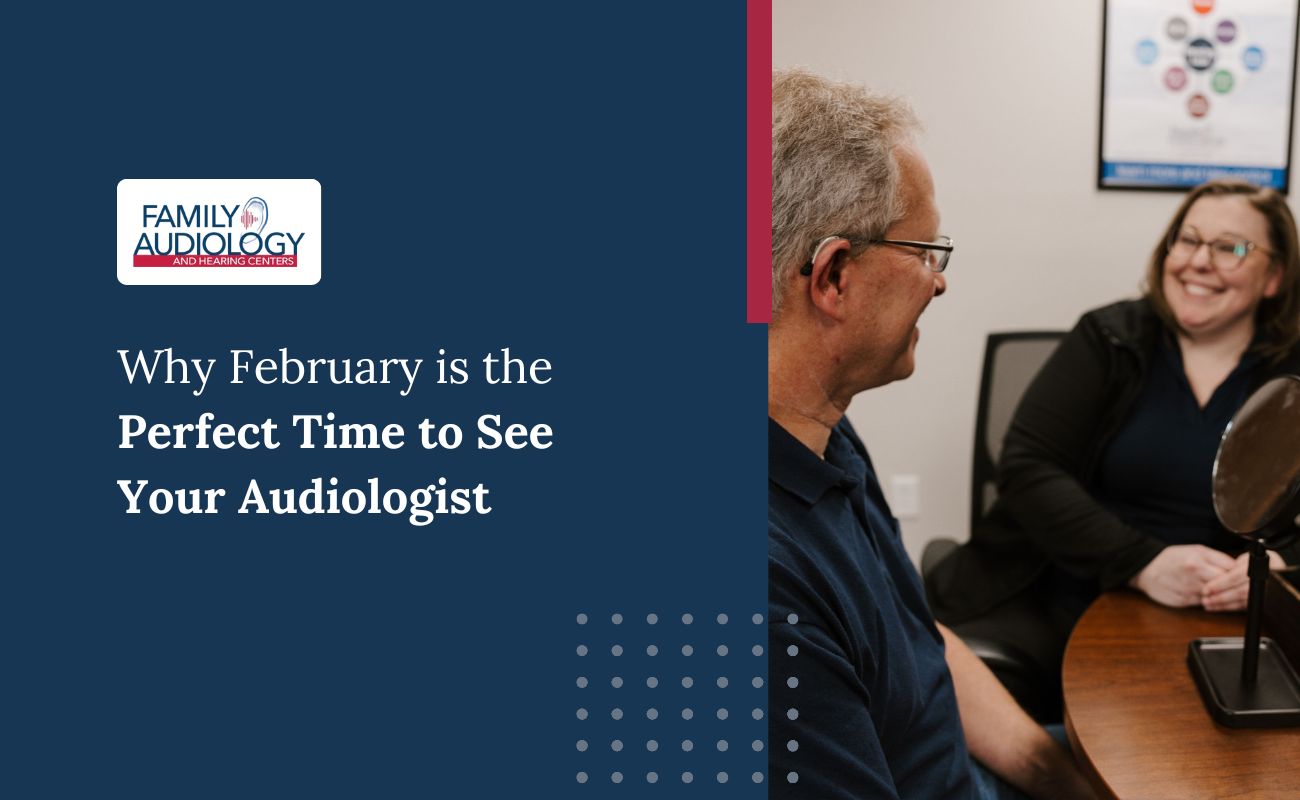The Impact of Untreated Hearing Loss on Cognitive Health



Most of us know someone – perhaps a parent, friend, or neighbor – who has slowly stepped back from family events or social gatherings because they find it challenging to follow conversations. While the day-to-day struggles of hearing loss are apparent, its effects on brain health often fly under the radar. As audiologists working with patients every day, we've witnessed firsthand how early intervention for hearing loss can positively impact cognitive function.
Understanding the Brain-Hearing Connection
Your ears and brain work as inseparable partners in the hearing process. While your ears capture sound waves, your brain performs the complex task of interpreting these signals into meaningful information. When hearing becomes compromised, your brain must dedicate extra resources to understand speech and sounds. This increased cognitive load might seem manageable initially, but studies show it can strain your mental resources over time.
What Research Shows About Hearing Loss and Brain Health
The research findings are compelling. Long-term studies tracking adults with untreated hearing loss reveal they experience cognitive decline up to 40% faster than those with normal hearing. More concerning still, even mild hearing loss can double the risk of cognitive decline, while severe hearing loss may increase that risk up to five times. Behind these statistics are real people – our patients, family members, and friends – whose quality of life has been impacted by postponing hearing treatment.
The Social Brain and Mental Stimulation
Our brains are wired for social connection. When hearing loss makes conversations difficult, many people begin withdrawing from social situations. Missing out on dinner table conversations, coffee with friends, or community activities means less mental stimulation for your brain. This reduction in social engagement can accelerate cognitive decline and affect overall mental well-being.
Daily Mental Function and Hearing Loss
Memory Challenges
If you've ever blamed your memory when you couldn't recall what someone just said, hearing loss might be the underlying cause. When your brain expends excessive energy just trying to hear words clearly, it has fewer resources available for storing and recalling information.
Mental Processing Speed
Information processing becomes more challenging when your brain constantly works to fill in gaps in conversation. This extra cognitive effort often leads to mental fatigue, particularly after social gatherings, work meetings, or extended conversations.
Focus and Attention Span
Following conversations in environments with background noise requires intense concentration when you have hearing loss. This sustained mental effort can affect your ability to focus on other important tasks throughout your day.
Decision Making and Problem Solving
The mental energy devoted to hearing can impact your cognitive flexibility – the ability to think clearly and make decisions. Tasks that once seemed routine might require more mental effort and time to complete.
Hidden Signs That Need Attention
Beyond asking people to repeat themselves, watch for these less obvious signs:
- Feeling unusually tired after social events or family gatherings
- Noticing that people seem to be speaking less clearly than before
- Struggling to hear certain sounds like birds chirping or doorbells
- Having difficulty following phone conversations
- Starting to avoid restaurants or group activities because conversation is too challenging
- Finding yourself reading lips more often to understand speech
- Turning up the TV volume higher than others prefer
Modern Hearing Technology: A Brain-Health Solution
Today's hearing aids represent remarkable advances in technology that go far beyond simple sound amplification. The Oticon Intent uses groundbreaking sensor technology to understand your listening intentions and adapt automatically to your environment. The Phonak Infinio features an innovative dual-chip system that processes sound more naturally than ever before. Meanwhile, the ReSound Nexia and Starkey Genesis AI leverage artificial intelligence to help your brain focus on what matters most in your sound environment.
Supporting Your Cognitive Health
Regular Hearing Check-ups
Just as you maintain regular vision checks and dental visits, consistent hearing evaluations help identify changes early. We advise annual hearing assessments for adults over 50, or sooner if you notice changes in your hearing.
Mental Exercise
Combine proactive hearing care with activities that challenge your brain:
- Pick up a new hobby or skill you've always wanted to try
- Engage in crossword puzzles, Sudoku, or word games
- Join a book club or reading group
- Start learning a musical instrument
- Begin studying a new language
- Participate in group discussions or community activities
Physical Activity Benefits
Regular exercise improves blood flow to your brain and can help maintain both hearing and cognitive health. Simple activities like daily walks, swimming, or gentle yoga can make a significant difference.
The Value of Professional Care
While over-the-counter hearing devices may seem like a convenient solution, they cannot match the benefits of professional audiological care. Our audiologists use real ear measurements – a precise fitting method that ensures your hearing aids are programmed specifically for your unique hearing profile. This accurate fitting is essential for reducing the cognitive load on your brain and maximizing the benefits of your hearing technology.
Monitoring Your Progress
After fitting hearing aids, we carefully track your progress. Many patients report improved memory and mental clarity within just a few weeks of starting treatment. Regular follow-up appointments allow us to fine-tune your devices and ensure you're receiving maximum benefit from your hearing technology.
Schedule Your Hearing Evaluation Today
Age-related hearing loss may be common, but its impact on cognitive health makes early treatment more critical than ever. With proper hearing care and support, you can maintain your mental sharpness and stay socially engaged for years to come. At Family Audiology and Hearing Centers, we offer comprehensive hearing evaluations and personalized treatment plans at our 16 convenient locations across Ohio. Contact us today to schedule your evaluation and take a proactive step toward protecting both your hearing and cognitive health.
Discover the Latest Articles
Stay informed with our informative articles.

Why February is the Perfect Time to See Your Audiologist
.jpg)
What Your Audiologist Checks During a Comprehensive Hearing Evaluation

How AI Technology Is Transforming Hearing Aid Performance
Contact your local Hearing Aid Specialists
At Family Audiology and Hearing Centers, we strive to be there for all your family’s hearing needs. Because of this, we have 17 convenient locations in Ohio and Wisconsin for you to visit. See which location is best for you and schedule an appointment today.


